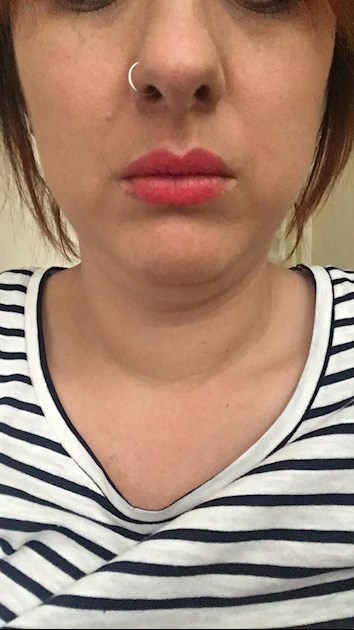I have had my Thyroid Antibodies checked with Immunology and they came back Negative with no range, is this normal??
I thought there is usually a range??
I am still suffering with an enlarged goitre and have many enlarged lymph nodes within my neck... no one seems to even care.. I'm at a total loss.
So here is what I've been told
T3 - is 5.3 Range (2.10-6.00pmol/l)
TSH - is 1.29 Range (0.10-5.00mU/L)
T4 - is 14 Range (8.00-19.00pm/L)
Thyroid Antibodies - Negative
Here attached is a photo of my ever growing enlarged thyroid that changes every day in size...
Any advice would be welcome
Thanks

